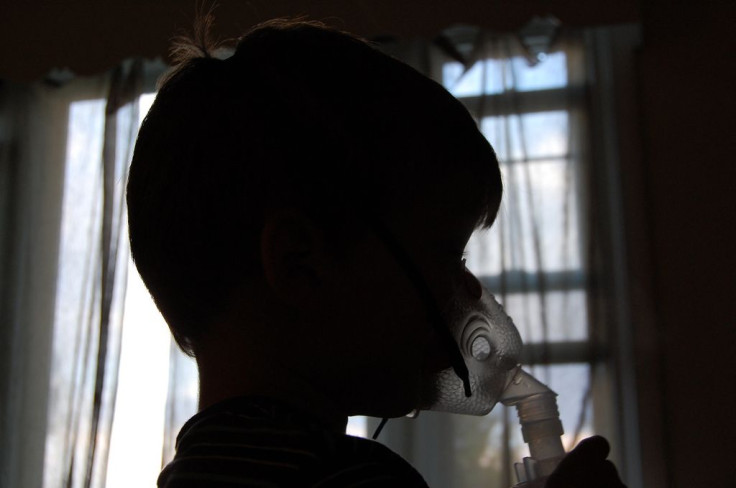Treating Asthma: 5 Phrases Your Child Could Say To An Allergist To Aid Treatment, And Why He Should Speak Up

Chronic diseases and disorders tend to devastate the quality of life for many people. Asthma specifically is a lung disease in which airways narrow, resulting in difficulty breathing and participating in physical activities that are as rigorous as sports or as simple as climbing the stairs at work. According to The National Heart, Lung and Blood Institute, more than 25 million people in the United States have asthma and close to seven million of these people are children.
Asthma diagnoses can happen at any age. Asthma also has a tendency to have varied levels of effects on people; some people may have difficulty breathing every day, while others only have difficulty when exposed to triggers like rigorous exercise or allergens like dust and mold. Similarly, asthma has the capacity to last throughout one's life, or only in childhood.
Asthma is currently incurable, but is manageable by drugs that work to keep airways open so that breathing does not become too arduous. In children, drugs used must be carefully monitored and given in correct dosages. Asthma medicines are often prescribed by allergists, doctors who specialize in affectations of the lungs and airways caused by foreign materials like plants, foods, and other substances termed allergens.
Often, when going to the doctor, children become timid and laconic. As a result, parents frequently do all the talking, regarding their children's symptoms, severity, and general well-being.
However, a new study indicates that the children should speak up instead.
Seventy-nine pediatric asthma patients and their parents were enrolled in the study. While researchers noted that useful information comes from caregivers, it's important for the allergist to ask both the parents and children about symptoms, activity limitations, and adherence to medications to better understand and treat the condition.
"Our research shows that physicians should ask parents and children about the effects asthma is having on the child's daily life," said lead study author Margaret Burks, M.D. "Parents can often think symptoms are better or worse than what the child is really experiencing, especially if they are not with their children all day."
The journal of the American College of Allergy, Asthma and Immunology (ACAAI) has published five important phrases from children that allergists should listen out for, so that even if children are shy during their visit, the doctor can still assess how the disease is affecting their quality of life and how to go about managing their symptoms.
These five key phrases, or warning signs, include:
1. "When I am outside or at home, my asthma symptoms worsen."
This can be indicative of sensitivity to a particular allergen that is triggering their asthma. This trigger can be a number of things like pet dander, dust, mold, pollen, or other allergens that can enter the air and become inescapable. Allergists can then prescribe allergy remedies, changes to the home, or drug therapy to make the child less sensitive to those allergens.
2. "Asthma prevents me from playing sports and participating in other activities."
A statement along these lines can be an indication that the management methods currently used are not adequate and that something else must be prescribed. Inability to participate in physical activity is what makes asthma so unbearable, and leads parents to start courses of drugs to help their kids breathe easily. As a result of this statement, allergist can provide better treatment options.
3. "I often feel sad or different from other kids because I have asthma."
This could be an indication of a mood disorder, like depression, as a result of their chronic disease. However, children should tell their doctor about their feelings regarding the ailment so that proper counseling can be sought; just because a child has a chronic disorder does not mean they ought to feel left out or otherwise different.
4. "There have been times that I have missed school because of my asthma."
This statement is perhaps the most common. "Asthma is a serious condition that results in more than 10.5 million missed schools days for children annually," said James Sublett, M.D., chair of the ACAAI public relations committee. "It is important for children to tell their allergist about their symptoms so the best treatment can be provided and over-treating doesn't occur."
5. "My asthma disappeared."
While there is not a cure for asthma, studies have shown that it can be outgrown if there is no family history of the disease. However, it is up to a child's doctor to decide the course of action after the disease's "disappearance," as often, the disease does not go away, becoming only manageable due to the drugs used.
ACAAI recommends effective asthma management by allergists. While asthma remains incurable, management of the disease in children is important for upholding the normalcy of their adolescence.
Source: Burks ML, Brooks EG, Hill VL, Peters JI, Wood PR. Assessing proxy reports: agreement between children with asthma and their caregivers on quality of life. Annals of Allergy, Asthma & Immunology. 2013.



























